Methods of Separation
Important Questions on Methods of Separation
The solubility of a certain substance does not change with temperature. How can you make an unsaturated solution of such substance saturated?
Select an incorrect reason for separating components of a mixture.
wheat grains are mixed with mustard seeds.

Write suitable method to separate the mustard seeds from wheat grains`
Write a single separation method by which water can be separated from a mixture of salt, sand, and water.
A beaker contains a mixture of salt, sand, and water.
The mixture is filtered using filter paper.

What is substance 'X'?
Tea leaves are separated with a strainer while pouring tea.
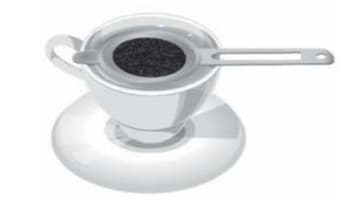
What property of the tea leaves is used to separate them from the tea?
Which of these process could be used to separate the salt dissolved in the glass of water?
Saroj collected muddy water from a pond.
He separated the water from the mud in three steps as shown in the picture below.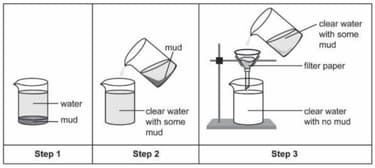
Did which of these properties did Saroj use to separate mud from water?
Saroj collected muddy water from a pond.
He separated the water from the mud in three steps as shown in the picture below.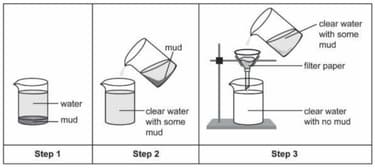
Which separation method did Saroj use at each step?
Sort the following into homogeneous and heterogeneous mixture:
Cereal in milk, blood, salt and water, air, smog, rain, soil, orange juice, sand and water, lemonade, fruit salad, cookies and carbonated water.
What fraction of the total is the homogenous mixture and the heterogeneous mixture? Find the ratio of homogeneous mixture to the heterogeneous mixture.
Nisha made a cup of tea using milk, sugar, and a tea bag. While pouring the tea in the cup, she didn't use a strainer. Can you guess why? What acted as a sieve here?
Insoluble solid particles are present in a beaker of water. Rohan brings substance to make soluble particles present the beaker settle down. After adding to the water in beaker, insoluble particles settle down at the bottom of the beaker due to the process . Rohan then pours clear water from the beaker into another vessel using a process . Write the names of and involved in the whole process of separation.
Two glass beakers (A and B) were taken and filled them with equal quantity of water. Now added a teaspoon full of salt in beaker A. Kept on adding one teaspoon of salt at a time. Recorded the number of teaspoons of salt that dissolved in beaker A. Now repeated the activity by adding teaspoon full of sugar in beaker B. Again recorded the number of teaspoons of full of sugar that was dissolved in beaker B.
Does the same quantity of water dissolve same amount of sugar and salt?
You have dissolved a half teaspoonful of salt in half a glass of water. Will you be able to get the salt crystals from the solution? Write yes or no. Give reasons for your answer.
A mixture contains camphor powder, sand, iron powder and common salt. Identify the separation methods that are employed to separate the constituents from the mixture.
A teacher explained the various separation techniques to her students. Now in order to test them that how well they understood the concept, she made them do an activity.
A sample of mixture A and B was provided to the group A and group B of the students respectively. They were asked to apply their knowledge and come up with a plan to separate the components of these mixtures. The following are the components of the two mixtures:
Mixture A : Water, sulphur and iron filings.
Mixture B : Rice, sugar and husk.
Can you help students to separate the constituent of two mixtures?
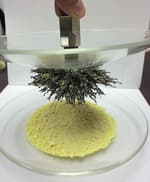
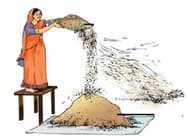
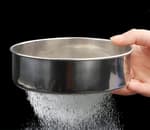
Saarika was travelling in a train with her father in the coastal regions of Kutch in Gujarat State. She noticed that there were shallow pits along the railway line filled with sea water. In some pits, there was a white powdery substance. She also noticed small mounds of white substance collected by the workers. Consider this white powdery substance to be X. Substance X dissolves in water. There must be some process of obtaining substance X. Consider the process to be Y.

Answer the following questions based on your understanding of the above:
(a) What do you think component X is?
(b) How is the white powdery substances obtained from sea water? Name the process Y.
(c) Mention some factors that help to increase the rate of process Y?
Sarika and Mohan are studying in the grade. There teacher was explaining aboutr the solution and solubility of substances in water in the classroom. The teacher asked them both to approach the table and instructed them to prepare salt solutions. Sarika was given a teaspoonful of salt and half a glass of water, whereas Mohan was given twenty teaspoons of salt and half a glass of water.
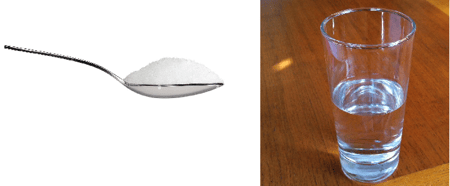
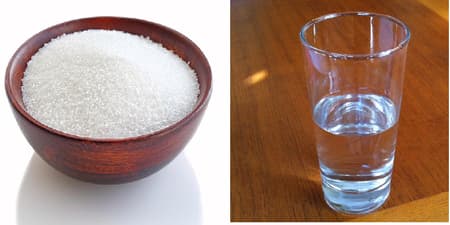
Based on the above information, answer the following questions:
1. How would they make salt solutions?
2. Who would be able to prepare a saturated solution?
Shilpa, Trapti and Prasanna have to dissolve maximum amount of sugar in the same amount of milk to win in a game. Prasanna took hot boiling milk while Trapti took ice-cold milk. Shilpa managed to get milk at room temperature. Whom do you think would win the game, and why?
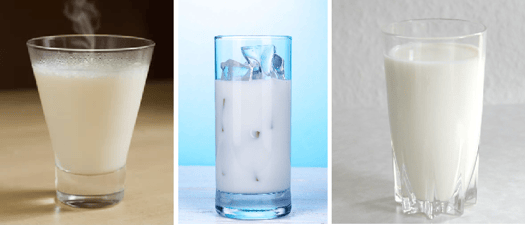
Natasha was carrying a bottle full of iron filings to her class. As she walked past the sand pit in her school, she slipped and fell. The iron filings fell on the ground and got mixed with sand. Amita, a friend of her who was standing there suggested Natasha to get a magnet and collect the iron fillings.
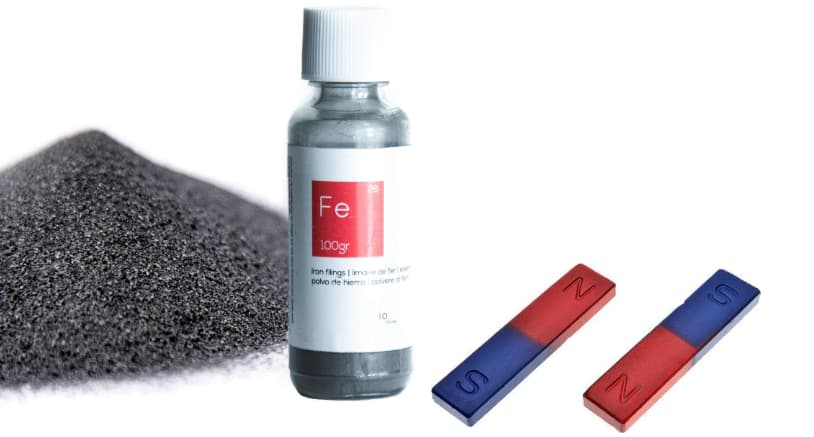
Has Amita given the correct advice? What steps will you follow to collect the iron fillings?

